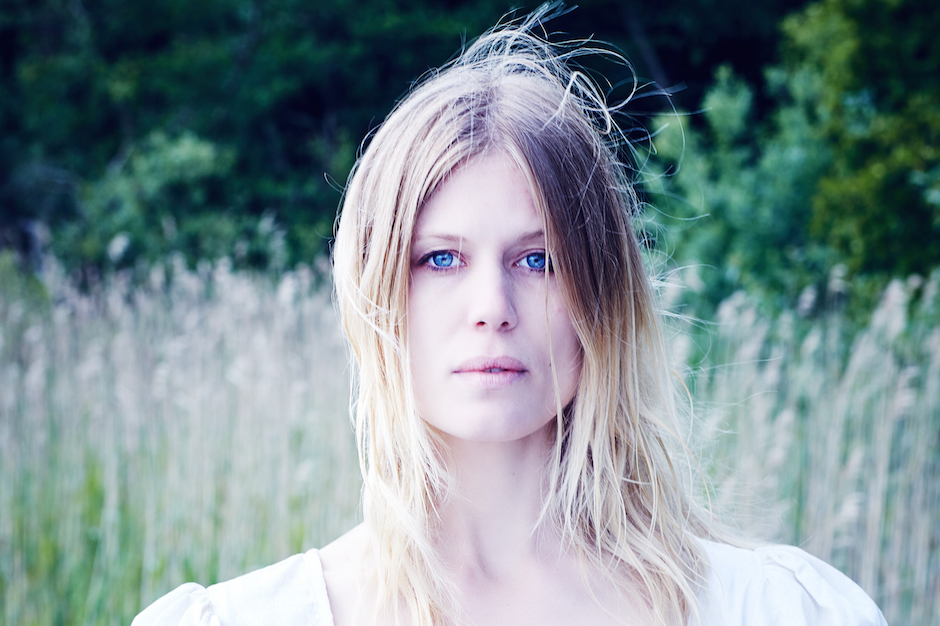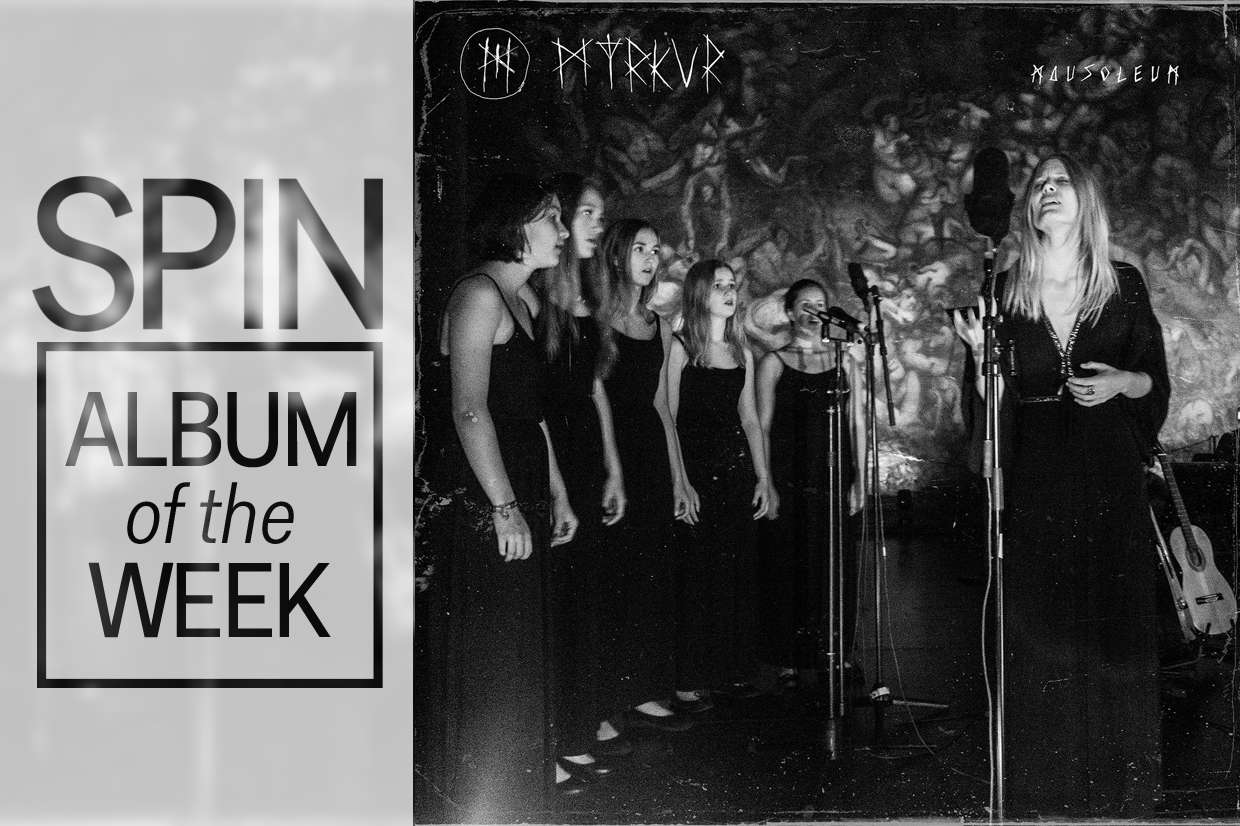With four candles flickering in front of her on a table at New York’s hallowed Electric Lady Studios, Denmark-based songwriter Amalie Bruun talks about her birthplace like it fills her lungs. Though she’s in town for just a minute — mostly to do interviews in support of her full length debut, M, and to visit friends, like the ones who work at the studio where we’re now sitting — she misses home already. “It’s just beautiful,” she explains. “Because Denmark is very small, you have ocean and forest right next to each other. [My mother and I] swim every morning. And now I feel like I can’t breathe if I’m away for too long.”
The music she makes as Myrkur is similarly bodied, but if her memories of home flow like air, her music stirs inside like the medieval humors. It’s a queasy mix of black metal bile and phlegmatic Danish trad-folk; when she needs a little relief, there’s blood-letting in the music that comes out. It’s inextricably a part of her, much like the place she’s from — a fact that she’s proud of as she gears up to release her first proper album. “We are born in a certain place and into a certain culture, and it affects who you are inside,” she says, attempting to explain the intimate relation between her Scandinavian upbringing and her blackened compositions. “It just made me feel at home again when I heard black metal. Even if it’s played by a tremolo guitar and blast beats, that chord universe, that melody… it’s the essence of me,” she explains.
Just over a year ago, before the release of her self-titled 2014 EP, that statement would have meant pretty much nothing. Aside from the knowledge that she was a woman of Scandinavian origin, little was known about Myrkur as an entity. The former model and member of the lilting, Billy Corgan-approved and -produced indie pop duo Ex-Cops initially presented the project anonymously, but it wasn’t because she was afraid of connecting the music to her previous careers. “I was never trying to hide who I was,” she says. “I just wanted that naïve hope of letting the music speak louder than anything else that has nothing to do with the music. And I thought that it was almost like a social experiment to see which of those indie press idiots dare to trust their own ears and heart. I felt a little bit like a puppet-master.”
She was pulling the right strings. With its scrappy, home-recorded charm and overwhelming emotion of black metal classics — like Bergtatt, the beat-up, blown-out 1995 Ulver album, and something of a hallowed text for those operating within the sphere — Bruun’s debut release won over the churlish metal press, as well as some of those “idiots” (this reporter included) at outlets whose purview is generally less geared toward the tortured and maleficent. But perhaps even more importantly, she won over some of the genre’s OGs, including Ulver frontman Kristoffer Rygg, a.k.a. Garm. “He said, ‘All these bands today, they go into the studios and they spend all this time trying to make it sound like shit. But yours sounded genuinely like shit,'” she recounts of their first encounter, chuckling. “‘There was so much beauty and authenticity in it.'”
Her EP was put together in Garageband without even a physical mixer as an aid. Along with a host of other musicians, including members of Mayhem and Arch Enemy, she and Garm decamped for a bigger-budget follow-up, the bombastic record that her birthplace’s Scandinavian forests and tempestuous seas demanded from her. “I wanted to do a Nordic, cinematic masterpiece, and I could do it now,” she says. They even recorded in a mausoleum in Oslo, Norway, both for the 11-second reverb and the maudlin atmosphere. “There’s no windows and it’s pitch black,” she recalls. “But then your eyes start to adjust, and then you start seeing these paintings that emerge from the walls that are just dead bodies.”
The resulting effort is as hushed and haunted as you might expect, but there’s breath and life in it, too. Songs like “Skadi” teeter with the stormy screeches and roiling blast beats you expect of the genre, but she’s just as likely to ascend skyward into a windswept, drugged dream-pop like “Dybt i Skoven.” On these shores, bands like Deafheaven and Wolves in the Throne Room have toyed with shooting searing light into black metal’s overwhelming darkness, but Myrkur’s take on that play is more of a total back and forth. She dives deep into the abyss, then turns on the light. Again, it comes back to Bruun, and the polar lifestyle that growing up in a staid place like Denmark forces upon you. “I’ve never been very good at grey areas — I just go out to the place where I feel something,” she explains. “Maybe it’s going to the top of a mountain and being scared. It’s only natural that I would seek it out in my own music.”
So she’ll continue to do so, as she moves Myrkur from a cloistered solo project to a fully operating live band. She recently debuted the band live at Denmark’s preeminent festival Roskilde under auspicious circumstances. “It was midnight. There was a full moon. I had my Scandinavian virgins with me — a Norwegian girls’ choir — It was perfect,” she says. It was, like her music, a perfect reflection of the grandeur and darkness of her country and her inner life — Denmark could ask for no better ambassador.





